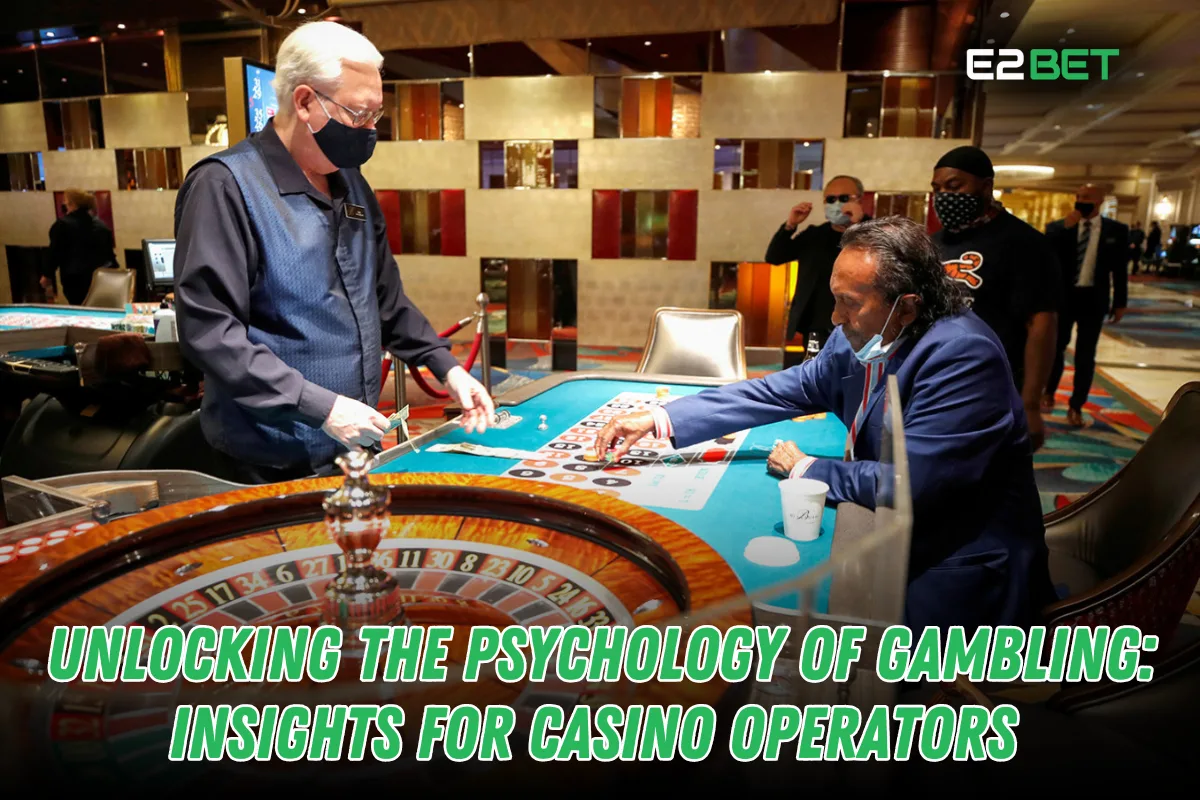Gambling isn’t just about luck—it’s driven by psychology. For casino operators, understanding the psychology of gambling is key to creating an engaging, responsible, and profitable gaming experience. Whether you’re managing a physical casino or an online gambling platform, understanding your players’ behaviors can enhance their experience and improve retention rates. This article delves into the psychological triggers that drive gamblers and offers insights for casino operators to apply these insights responsibly.
The Psychology Behind Gambling Addiction
What Drives People to Gamble?
Gamblers are motivated by a mix of excitement, social interaction, and the possibility of winning big. But at the core of this is dopamine—a neurotransmitter released during rewarding activities, like winning a bet. This rush encourages repeated gambling behavior, sometimes leading to addiction. Recognizing the power of dopamine helps casino operators design more engaging experiences without exploiting vulnerable players.
The Role of Dopamine and Near Misses
When gamblers experience wins or near misses, their brains release dopamine, reinforcing the desire to keep playing. Near misses are especially powerful; a player might not win, but the brain still registers excitement due to the close outcome. Understanding this psychological trigger can help casinos shape their offerings to keep players engaged without pushing them into addictive behaviors.
Cognitive Biases in Gambling
Confirmation Bias and The Gambler’s Fallacy
Confirmation bias makes gamblers focus on their wins, ignoring losses, which creates a false sense of skill or control over the game. Similarly, the gambler’s fallacy leads players to believe that a losing streak means a win is “due.” Both of these cognitive biases can lead to risky behavior, and casino operators should be aware of these patterns to encourage healthier gaming habits.

Illusion of Control and Availability Heuristic
Gamblers often believe they can control or influence outcomes, especially in games like poker or blackjack. This illusion of control distorts their judgment, leading to overconfidence. Additionally, the availability heuristic means gamblers tend to overestimate the likelihood of winning based on personal experiences or stories they’ve heard, which can lead to poor decision-making.
The Social and Environmental Influence on Gambling
Social Reinforcement and Peer Influence
Gambling is often a social activity. Players are influenced by peers, whether they’re playing in person at a casino or online. Positive reinforcement from fellow gamblers encourages continued play, and casinos can leverage social influence by creating group experiences like tournaments or team events. This helps build community while keeping players engaged.
The Impact of Casino Environment
A casino’s environment—bright lights, sounds, and the use of color—affects gambling behavior. These sensory stimuli create an immersive experience that encourages players to stay longer and gamble more. Casino operators who understand how environmental design impacts gambling psychology can create spaces that are both exciting and responsible.
Psychological Strategies for Casino Operators
Designing an Engaging Gambling Experience
To keep players coming back, casino operators should focus on creating an environment that fosters positive reinforcement. Small, frequent wins can enhance the gambling experience, as can rewards that feel personalized. Using behavioral psychology, casinos can craft engaging experiences that encourage players to stay while promoting responsible gambling.
Using Technology for Personalization
Incorporating AI and data analytics allows casinos to track player preferences and behavior. By offering personalized recommendations based on individual playstyles, casinos can enhance engagement while offering tailored rewards. These technologies also help identify problem gambling behaviors early on, allowing operators to intervene and promote responsible gambling.
The Ethics of Gambling Psychology
Balancing Profit and Player Welfare
While psychological techniques can boost profits, casino operators must ensure they are not exploiting players’ vulnerabilities. Promoting responsible gambling practices, like offering self-exclusion programs and deposit limits, ensures players can enjoy the experience while avoiding addiction. Striking a balance between profitability and player welfare is crucial for long-term success.
The Future of Gambling Psychology
Innovations in Gambling Behavior
As technology evolves, the way casinos operate and interact with players will change. The rise of virtual reality, gamification, and immersive environments are all trends shaping the future of gambling. Casino operators who embrace these innovations while keeping the psychology of their players in mind will stay competitive.
AI and Machine Learning for Better Player Engagement
AI is already transforming the casino industry. By analyzing player data, AI can predict behavior, offer tailored experiences, and even detect signs of addiction. This allows casinos to improve player engagement and foster responsible gaming through the use of machine learning and behavioral insights.
Conclusion
The psychology of gambling is complex, but understanding the mental triggers that drive players is essential for casino operators. By applying psychological insights responsibly, casinos can create a more engaging and safer environment for their customers. With advancements in technology and a deeper understanding of human behavior, the gambling industry will continue to evolve, providing both challenges and opportunities for operators to enhance player experience and loyalty while promoting responsible gambling.
FAQs
Q1. How can casinos increase player retention?
Ans: By offering personalized rewards, loyalty programs, and creating immersive experiences, casinos can boost player retention while promoting responsible gambling.
Q2. What is the role of dopamine in gambling?
Ans: Dopamine is a key neurotransmitter that rewards players with a sense of pleasure, driving them to continue gambling, especially after wins or near misses.
Q3. How can casinos promote responsible gambling?
Ans: Casinos can implement self-exclusion programs, set deposit limits, and provide educational resources to encourage responsible gaming.
Q4. What cognitive biases do gamblers commonly exhibit?
Ans: Gamblers often fall victim to confirmation bias, the gambler’s fallacy, and the illusion of control, leading to poor decision-making.
Q5. How is technology changing gambling psychology?
Ans: Through AI and data analytics, casinos can predict player behavior, personalize experiences, and intervene when problematic gambling behavior is detected.